

Johns Hopkins University (JHU) continues to pad its space community résumé with their interactive map, “The map of the observable Universe”, that takes viewers on a 13.7-billion-year-old tour of the cosmos from the present to the moments after the Big Bang. While JHU is responsible for creating the site, additional contributions were made by NASA, the European Space Agency, the National Science Foundation, and the Sloan Foundation.
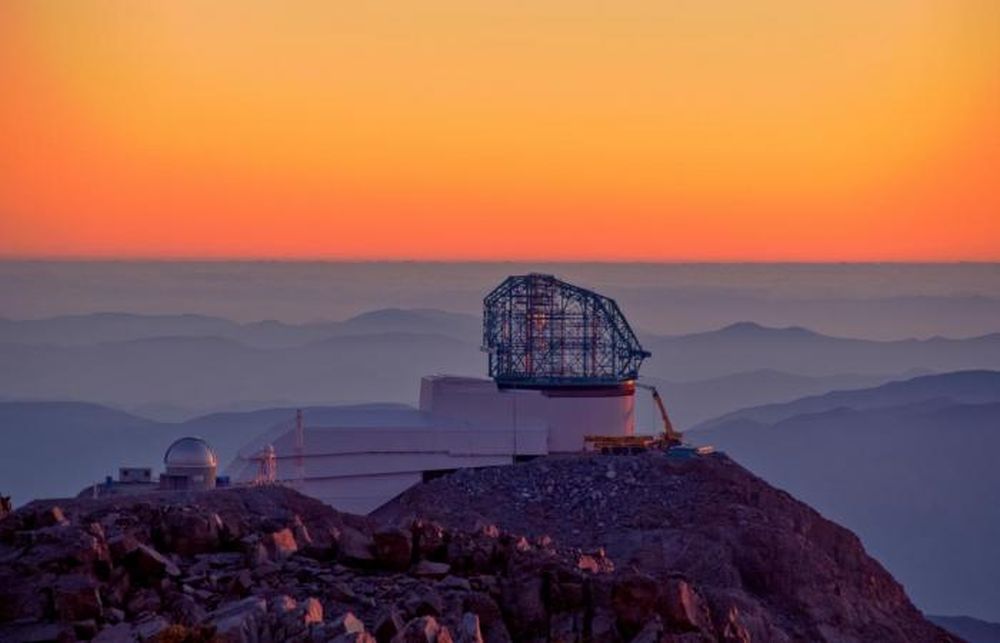
The U.S. House of Representatives have passed (JULY 2019) a bill to change the name of the Large Synoptic Survey Telescope (LSST.) Instead of that explanatory yet cumbersome name, it will be named after American astronomer Vera Rubin. Rubin is well-known for her pioneering work in discovering dark matter.
SLAC (Stanford Linear Accelerator Laboratory) Published on Nov 1, 2016 Ranked as the top ground-based national priority for the field for the current decade, LSST is currently under construction in Chile. The U.S. Department of Energy’s SLAC National Accelerator Laboratory is leading the construction of the LSST camera – the largest digital camera ever built for astronomy. SLAC Professor Steven M. Kahn is the overall Director of the LSST project, and SLAC personnel are also participating in the data management. The National Science Foundation is the lead agency for construction of the LSST. Additional financial support comes from the Department of Energy and private funding raised by the LSST Corporation. To learn more, visit

The 3200-megapixel LSST Camera arrived at Vera C. Rubin Observatory on May 16th and is being readied for installation. Courtesy NOIRLab.
This video documents the journey of the LSST Camera from SLAC National Accelerator Laboratory in California to Rubin Observatory on the summit of Cerro Pachón in Chile. The camera arrived on the summit on 16 May 2024. More information and download options: Credit: Rubin Observatory/NSF/AURA/S. Deppe/O. Bonin, T. Lange, M. Lopez, J. Orrell (SLAC National Lab)

The complete focal plane of the future LSST Camera is more than 2 feet wide and contains 189 individual sensors that will produce 3,200-megapixel images. Crews at SLAC have now taken the first images with it. (Jacqueline Orrell/SLAC National Accelerator Laboratory)

View of Rubin Observatory at sunset in December 2023. The 8.4-meter telescope at Rubin Observatory, equipped with the highest-resolution digital camera in the world, will take enormous images of the southern hemisphere sky, covering the entire sky every few nights. Rubin will do this over and over for 10 years, creating a timelapse view of the Universe. Image Credit: RubinObs/NSF/AURA/H. Stockebrand
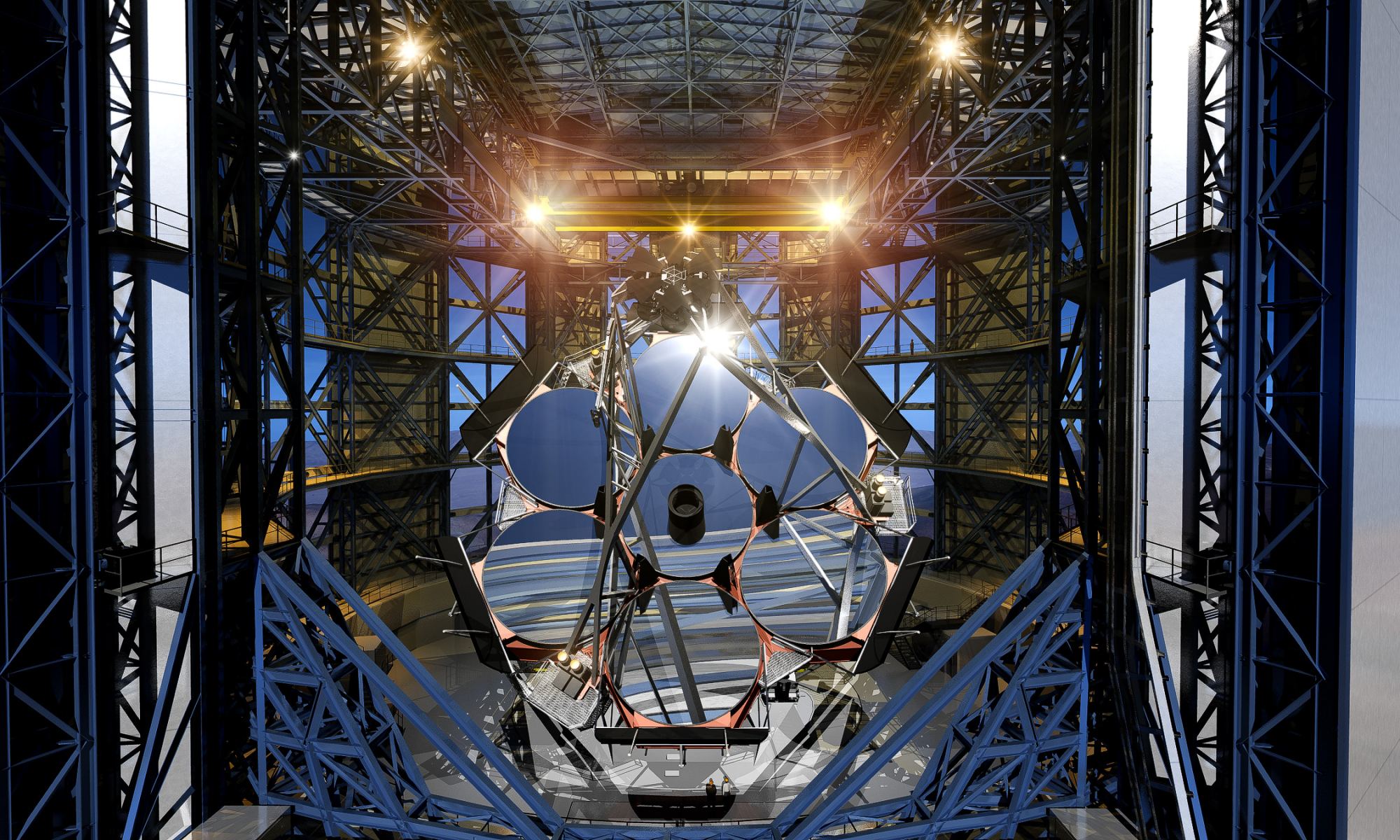
Artist conception- finished product
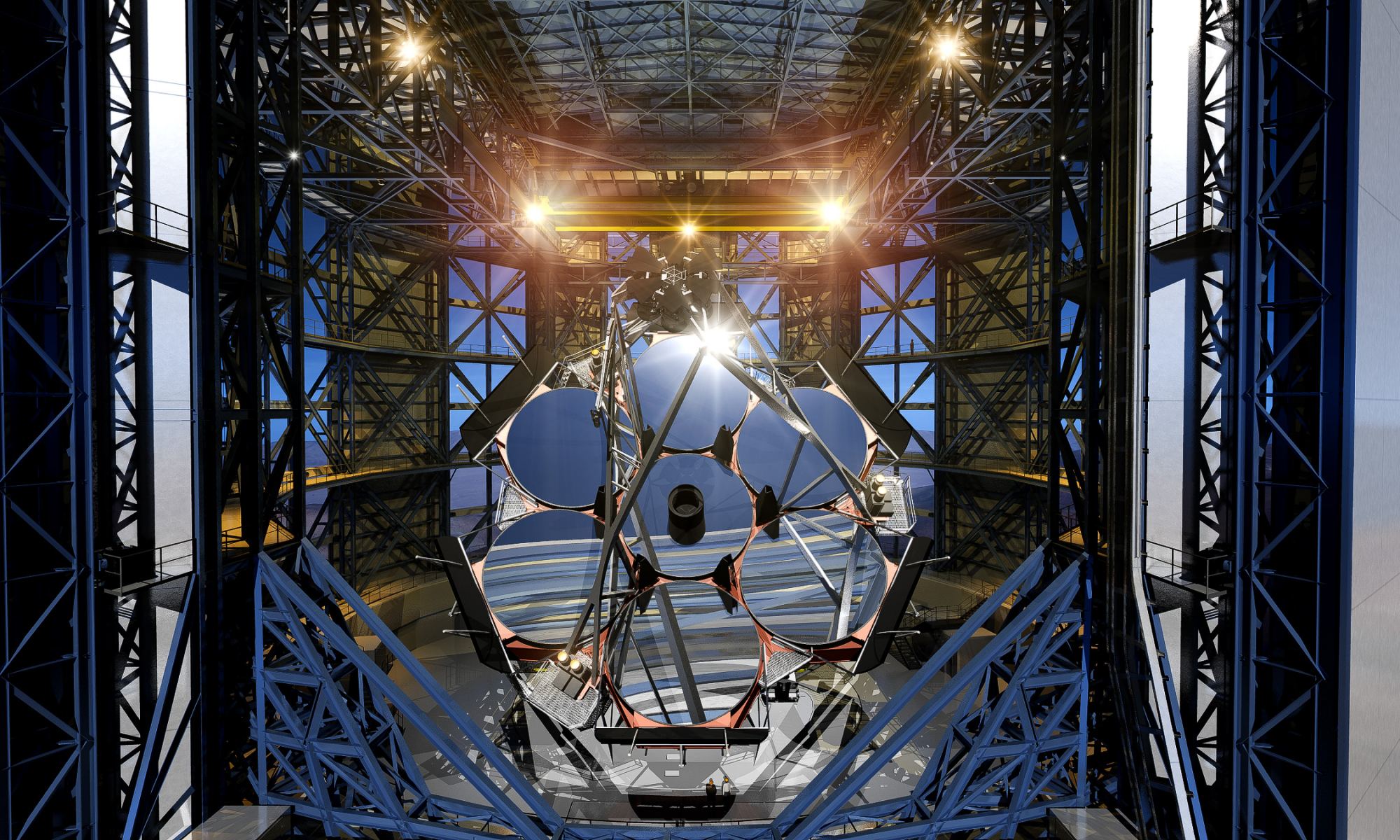
By 2029, the Giant Magellan Telescope (GMT) in northern Chile will begin collecting its first light from the cosmos. As part of a new class of next-generation instruments known as “extremely large telescopes” (ELTs), the GMT will combine the power of sophisticated primary mirrors, flexible secondary mirrors, adaptive optics (AOs), and spectrometers to see further and with greater detail than any optical telescopes that came before.
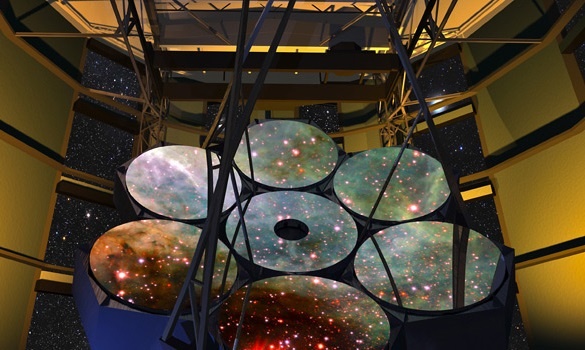
Artist’s impression of the GMTs segmented mirror. Credit: GMTO
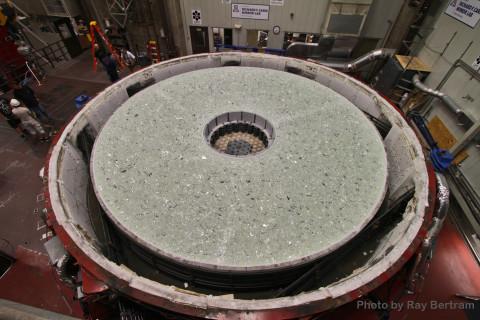
A GMT mirror segment being cast at the Richard F. Caris Mirror Lab. Credit: GMTO
GMT mirror 5 casting: This timelapse shows several stages of the mirror casting process, including creating the light-weighted mirror mold, loading nearly 20 tons of borosilicate glass into the mold, and the furnace spinning at five revolutions per minute during "high fire," heating the glass to 1,165 degrees Celsius (2,129 F) for approximately five hours until it liquefies into the mold. GMT mirror 5 is being fabricated at the Richard F. Caris Mirror Lab at the University of Arizona.
In this video from July 2019, during the morning of the solar eclipse.
#indiamegaprojects #extremeengineering #astronomy #telescope India is a founding member of the Thirty Meter Telescope (TMT) project, which aims to build a 30-meter diameter telescope at Mauna Kea, Hawaii. India's contributions to the project include: Hardware: 83 of the 492 mirrors, segment support assemblies, actuators, edge sensors, segment polishing, and segment coating Instrumentation: First light instruments Software: Observatory software and telescope control systems
E-mail:Commercial Purposes ► - - In Chile's Atacama Desert, the Extremely Large Telescope, the world's largest telescope, is being built. It will be equipped with an optical lens of more than 39 meters in diameter, occupying an area larger than a basketball court. Thanks to this, it will have a sharpness and range superior to those currently held by the Hubble Space Telescope and even more incredible than what the new James Web Space Telescope will offer. Stay to find out. One of the main objectives of the ELT telescope is the discovery of new extrasolar planets and the study of the atmospheres of these planets; it will also be responsible for studying the protoplanetary disks in other stars to understand better how solar systems arise, as well as studying dark energy and galaxy formation. The telescope is currently under construction. Although the pandemic caused setbacks, the European Southern Observatory (ESO) has announced that, if the work continues uninterrupted, the telescope will be completed in 2027. - -"If You happen to see any content that is yours, and we didn't give credit in the right manner please let us know at and we will correct it immediately" "Some of our visual content is under an Attribution-ShareAlike license. in its different versions such as 1.0, 2.0, 3,0, and 4.0 – permitting commercial sharing with attribution given in each picture accordingly in the video." Credits: Ron Miller, Mark A. Garlick / MarkGarlick.com Credits: Nasa/Shutterstock/Storyblocks/Elon Musk/SpaceX/ESA/ESO/ Flickr 0:40 Extremely Large Telescope ( ELT) 2:07 Atmospheric Turbulence 3:35 Adaptive Optics 5:34 THE CHALLENGE OF BUILDING THE WORLD'S LARGEST MIRROR 7:00 Active optics 9:34 Scope #InsaneCuriosity #elt #extremelylargetelescope
<
Welcome to Ultimate Build YouTube Channel, Explore the Secrets of the Universe with the World's Largest Telescope! Journey with us to the Atacama Desert in Chile where a dedicated team is building a groundbreaking observatory. Discover the awe-inspiring stats and profound implications of this ambitious project, set against the backdrop of the one of the most remote locations on Earth. This colossal telescope aims to revolutionize our understanding of the cosmos, offering the tantalizing possibility of detecting extraterrestrial life. Join us as we delve into the mysteries of the universe, guided by the power of the Extremely Large Telescope! #atacamadesert #chile #telescope #megaprojects #southamerica
In der chilenischen Atacamawüste bauen Männer und Frauen das größte Teleskop der Welt. Eine gigantische Baustelle mit Rekordzahlen und Einsätzen, isoliert vom Rest der Welt. Das Extremely Large Telescope, kurz ELT, wird auf dem Gipfel des Cerro Armazones, einer 3.000 Meter hohen Plattform im Norden Chiles, gebaut. Mit einem Hauptspiegel, der bei seiner Inbetriebnahme der größte der Welt sein wird, kann das ELT-Megateleskop noch weiter ins Universum vordringen und uns noch nie dagewesene Bilder liefern. Eine echte Revolution für die astronomische Forschung, auf die wir mit Spannung warten.. . Das werden wir heute in dieser neuen Folge von Looking 4 sehen. Viel Spaß mit dem Video. Einige Bilder sind von ESO , Danke an sie! ✔ 📽 Meine anderen lizenzfreien Bilder und Musik.👇 00:00 Standort und Vorstellung des ELT 02:55 VLT: Sehr großes Teleskop 04:43 Die Rolle der ESO: die Europäische Südsternwarte 05:42 Baufortschritt des ELT 08:19 Das Extremely Large Telescope: ein technisches Wunderwerk 09:03 Der größte Hauptspiegel der Welt 10:52 Das ELT: Eine Revolution in der Astronomie 12:38 Andere laufende Megaprojekte: GMT und TMT
The dome of ESO's Extremely Large Telescope (ELT) begins to take shape. This is the largest telescope dome ever build. The structure is about 88 metres in diameter and nearly 80 metres high, giving the dome a footprint roughly equivalent to that of a football pitch. The giant ELT dome will house the telescope and its interior structure, providing protection from the extreme environment of Chile's Atacama Desert. : Learn more about ESO’s ELT at Watch our ELT playlist here : • Meet MICADO, a super-camera for the ELT! | ELT Updates Credit: ESO Directed by: Angelos Tsaousis Editing: Angelos Tsaousis Web and technical support: Gurvan Bazin and Raquel Yumi Shida Written by: Bárbara Ferreira Consultants: M. Wallner, R. Tamai Music: Jon Kennedy – Any Road Up Footage and photos: ESO, G. Hüdepohl (atacamaphoto.com), L. Calcada, A. Tsaouis, J. Porte, M. Nadjar, I. Casas del Valle Acknowledgement: CIMOLAI More information and download options:
The MICADO camera MICADO stands for Multi-AO Imaging Camera for Deep Observations, will be one of the first-generation instruments of ESO’s Extremely Large Telescope(ELT) — . will take high-resolution images of the Universe at near-infrared wavelengths. This makes the instrument ideal for identifying exoplanets, but also for resolving individual stars in other galaxies and investigating the mysterious centre of the Milky Way. This documentary will give you a unique behind-the-scenes look at how MICADO works, the challenges of designing such a complex instrument, and how it will change our understanding of the cosmos once it’s operational at the ELT. Credit: ESO Directed by: Martin Wallner. Editing: Martin Kornmesser, Herbert Zodet and Martin Wallner. Web and technical support: Gurvan Bazin and Raquel Yumi Shida. Written by: Martin Wallner, Giulio Mazzolo, Anita Chandran and Bárbara Ferreira. Narration: Colin Griffiths-Brown. Music: Mylonite MRP (Mylonite Recordz Production) — BO Réflexion Méditation/Berceuse spatiale, Johan B. Monell (www.johanmonell.com) — Gamma Ray Bursts/Explorer of the Unknown/ Rosetta Mission, Stellardrone — Open Cluster and DoKashiteru — Computer. Space Engine ,Footage and photos: ESO, MICADO consortium, L. Calçada, M. Kornmesser, Nick Risinger Genzel et al., , CLUES — Constrained Local Universe Evolution Simulation, ACe Consortium, G. Hüdepohl , © KUK Film, ESA/Hubble, J. Emerson/VISTA. Acknowledgment: Cambridge Astronomical Survey Unit, Digitized Sky Survey 2 and ESO/Nogueras-Lara et al., Davide De Martin, S. Guisard , GRAVITY collaboration, Jordy Davelaar et al./Radboud University/BlackHoleCam, INAF-VST/OmegaCAM, A. Grado, L. Limatola/INAF-Capodimonte Observatory, S. Brunier and Theofanis N. Matsopoulos. More information and download options:
<